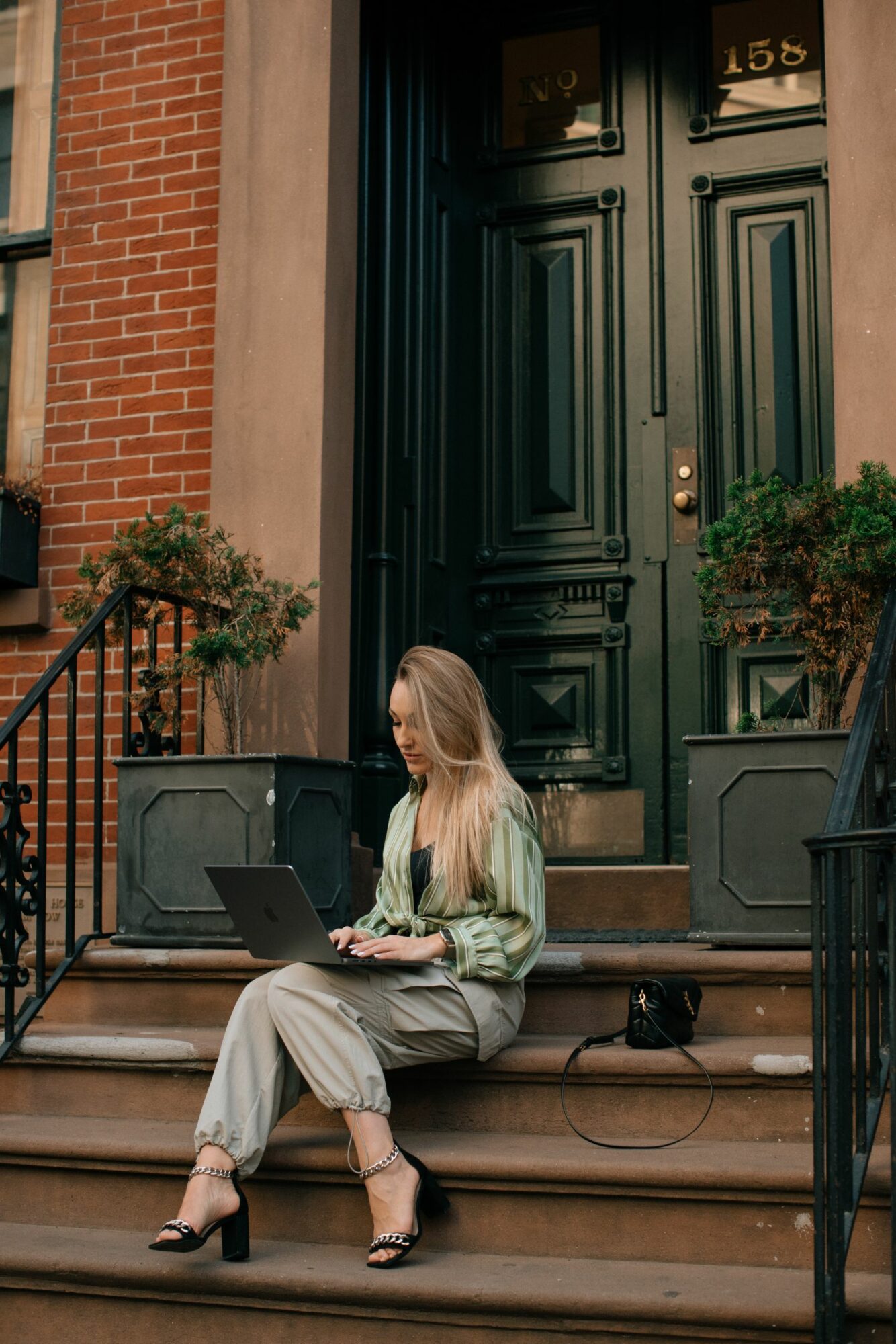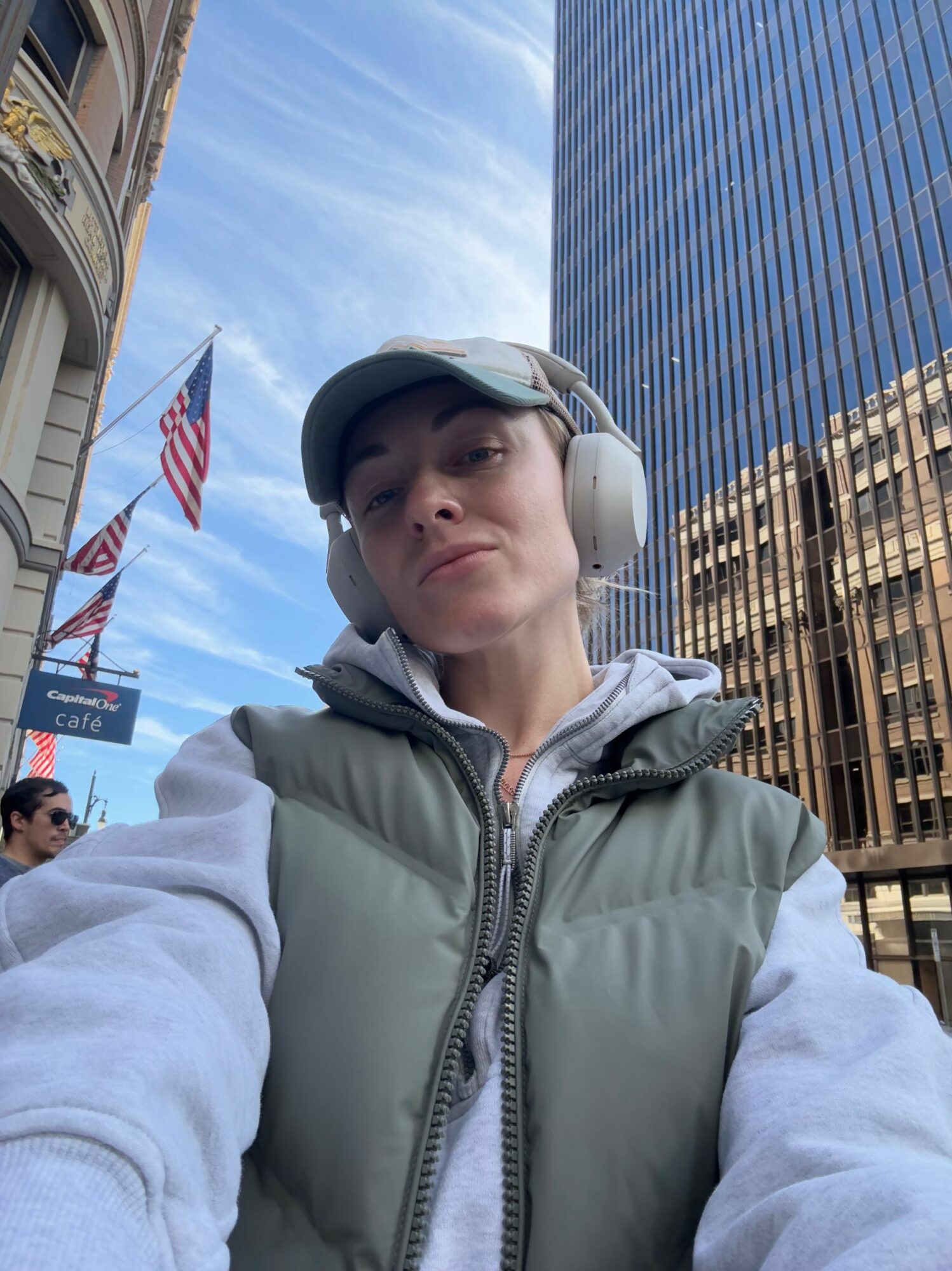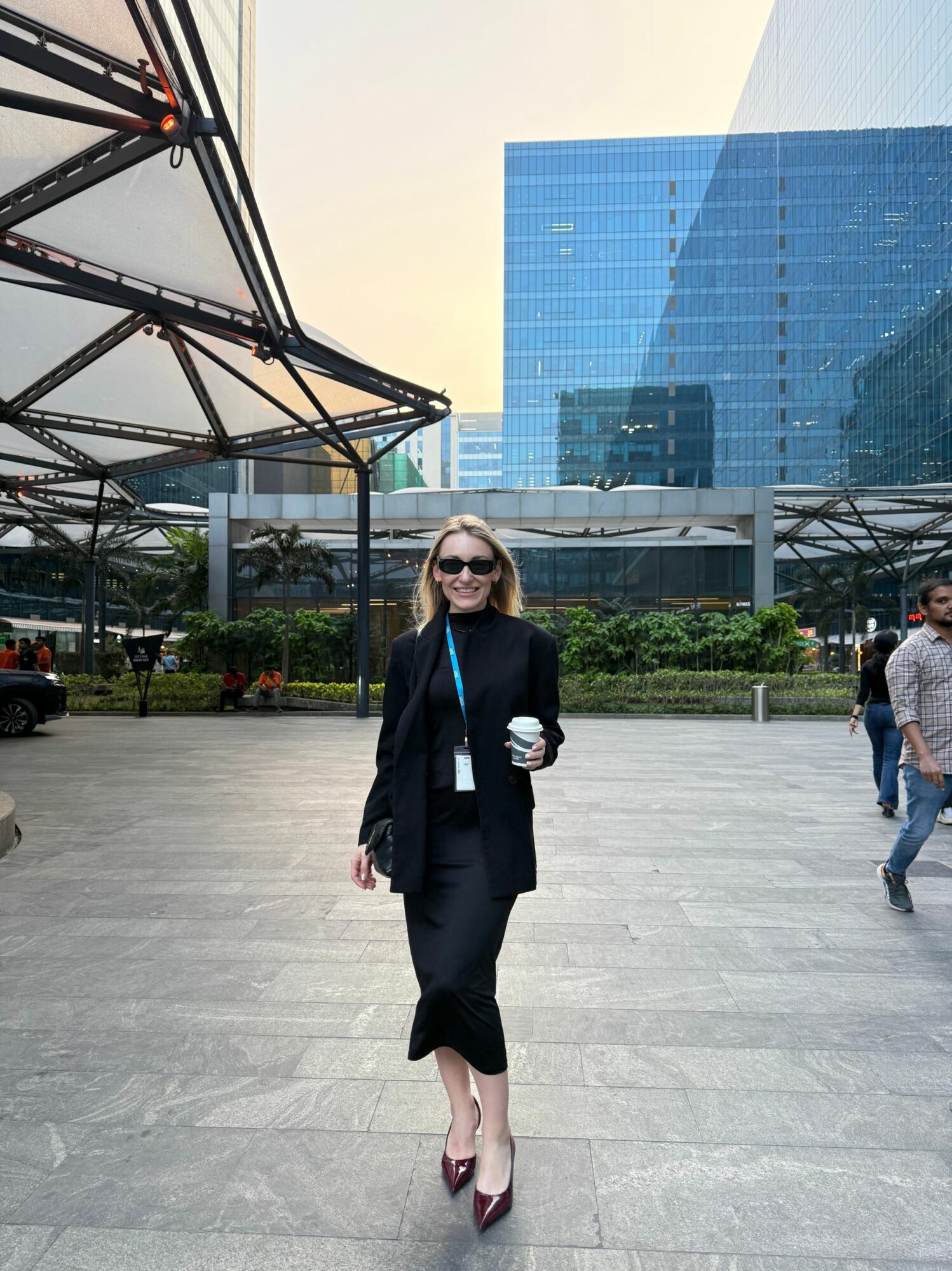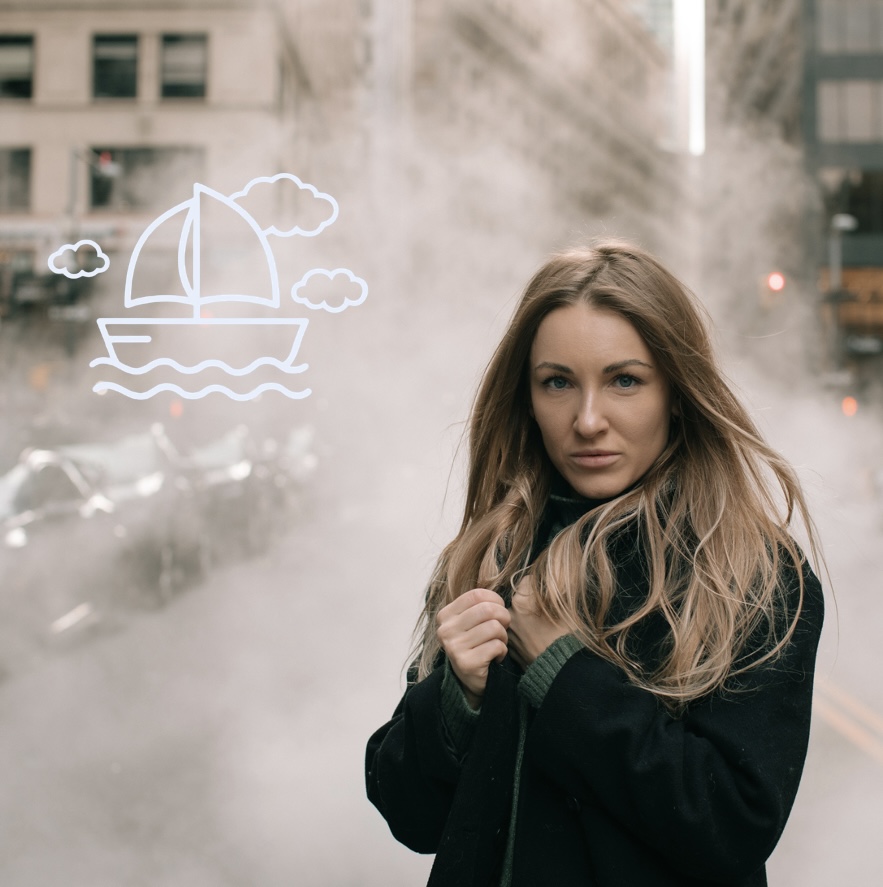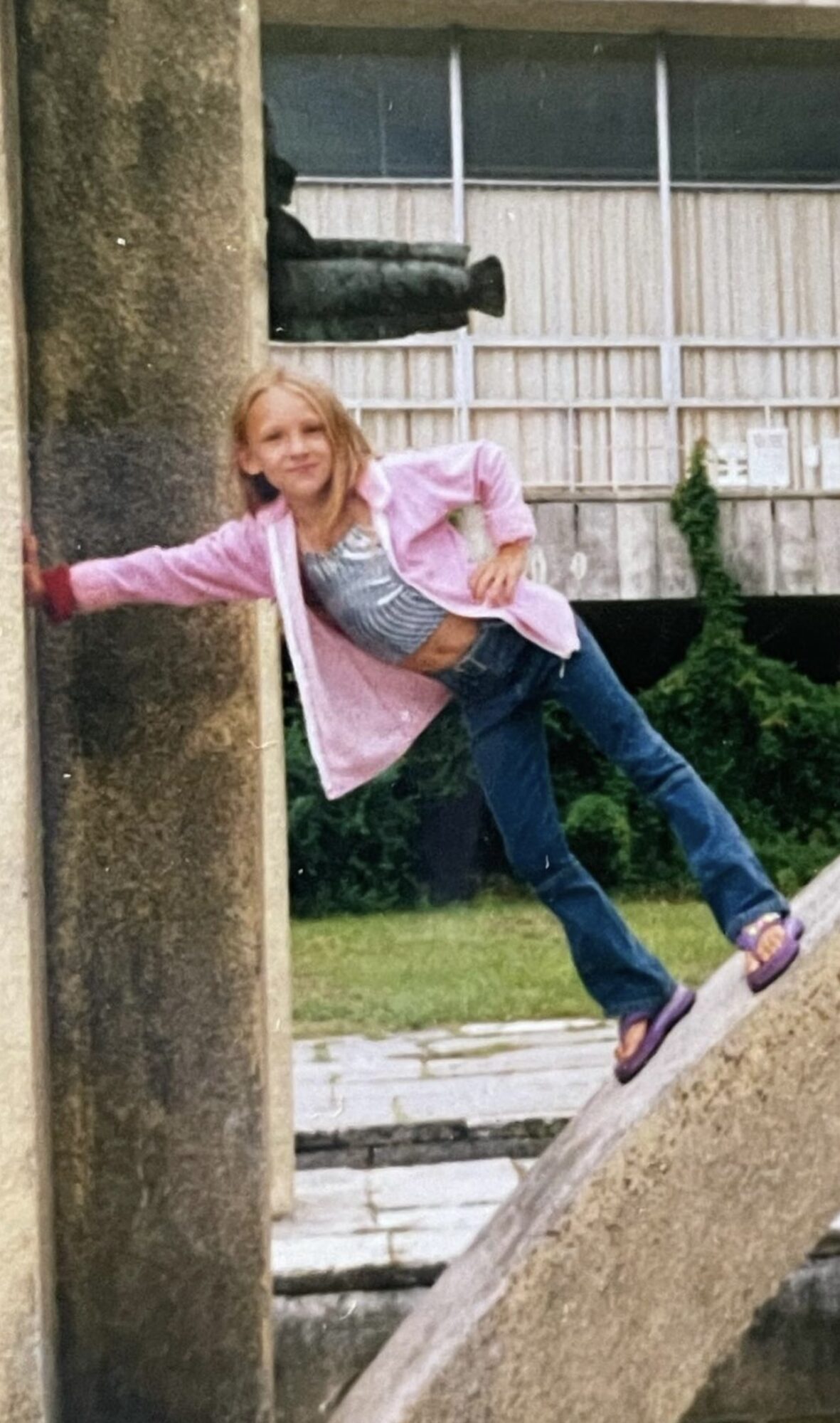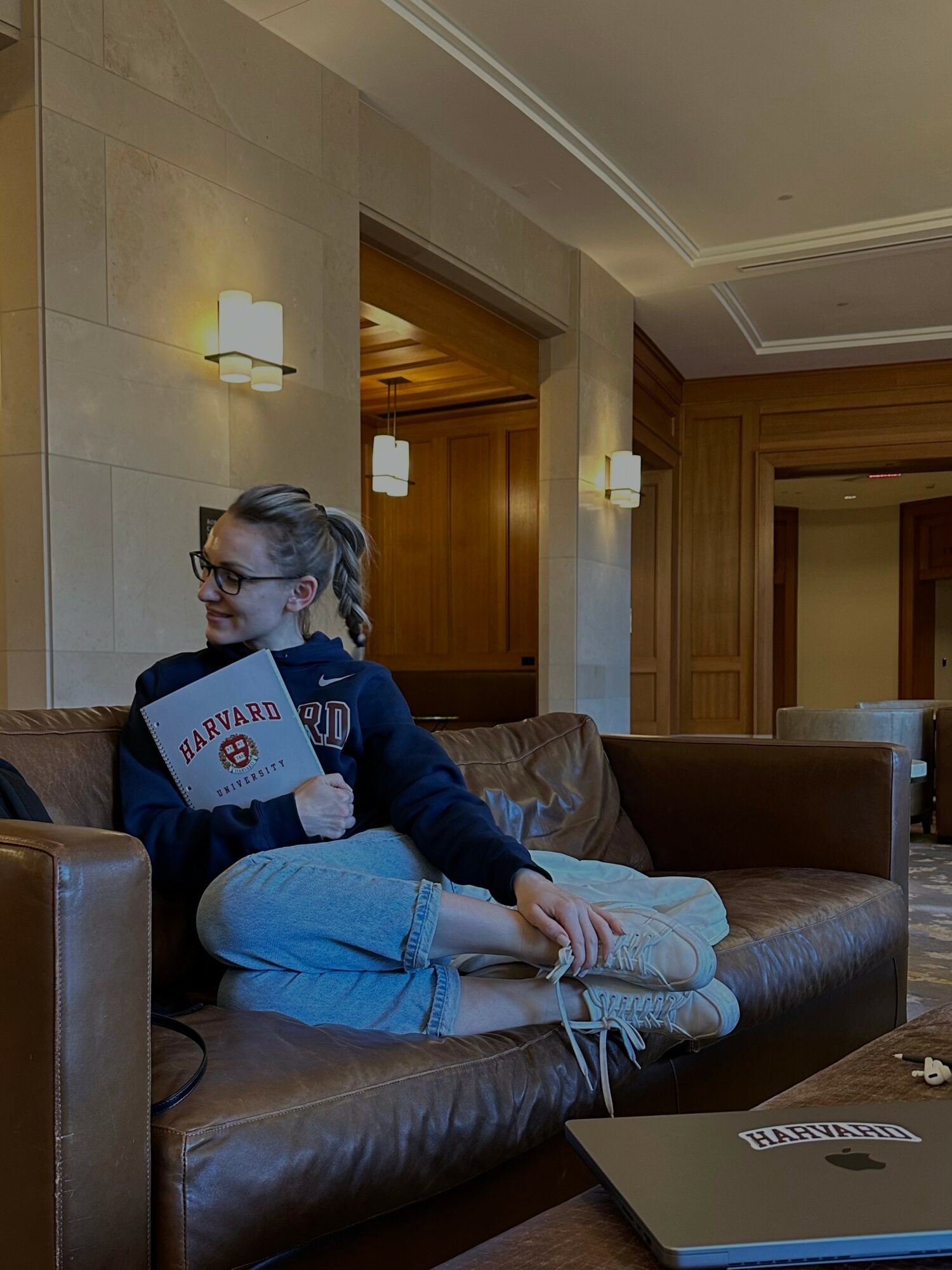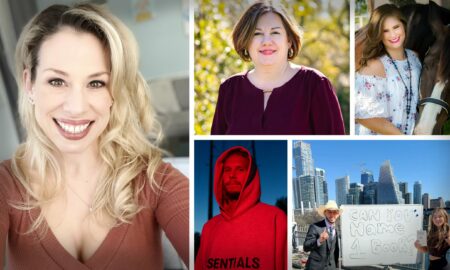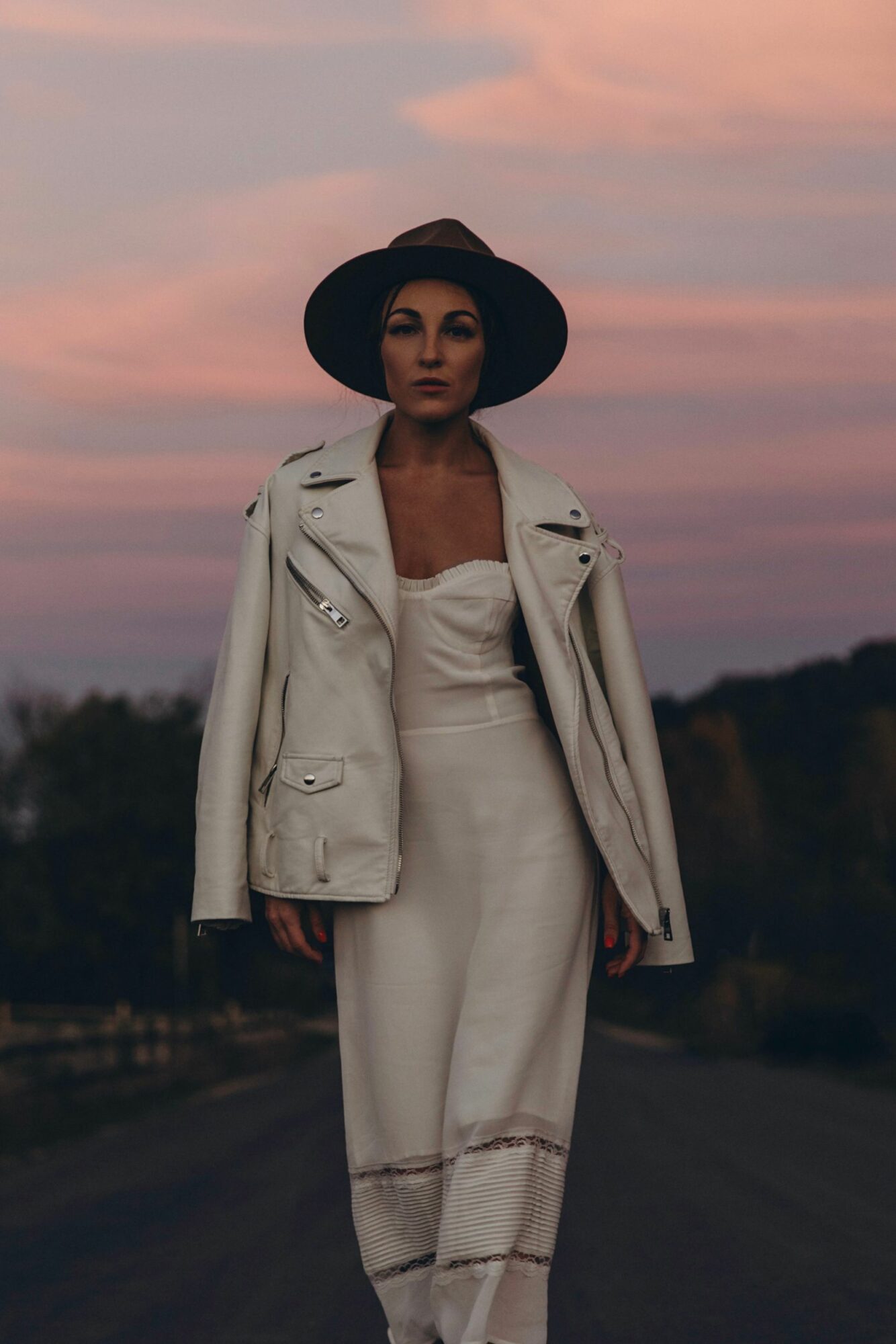

Today we’d like to introduce you to Katsiaryna Subach.
Katsiaryna, we appreciate you taking the time to share your story with us today. Where does your story begin?
I grew up in a town with no escalators, no metro, no McDonald’s. But in my head, I was already walking into skyscrapers.
I grew up in Pinsk, a warm corner of Belarus with about 120,000 people. It wasn’t the capital, it wasn’t a metropolis: no metro, no escalators, not even a McDonald’s. But it was home. My mother worked as a baker, my father as a mechanical engineer. Ours was an ordinary middle-class family.
When I was nine, my parents divorced. That moment didn’t just change our family, it carved out a space in me filled with questions, longing, and an early understanding of how fragile life can be. I often wished my father could be there to guide me, but in his absence I learned to guide myself, turning hardship into fuel for resilience. My mother had to leave the country for work, and my grandmother, a strict woman with the iron temperament of the Soviet generation, took over raising me. She was tough, but she loved me fiercely.
School brought its own struggles. English was my weakest subject. My tutor’s lessons often felt endless – him drilling grammar while I sat quietly, sipping tea and enjoying jam. But one day he changed his approach. Instead of grammar, he showed me his work as a government translator: letters covered in stamps, images of people from distant places, stories of worlds far beyond Pinsk. For the first time, I felt the boundaries of my town give way. The world was larger, and maybe, just maybe, I had a place in it.
By then, I was already trying to create something of my own. At nine, I launched my “first business” – a second-hand store in the basement of our building. I asked neighborhood kids to bring things their families didn’t need, and we put them on sale. For a brief moment, I thought I was a genius entrepreneur. Then the parents discovered their missing items, the business collapsed overnight, and I found myself grounded for weeks. But I wasn’t discouraged. Soon after, I found another hustle: collecting clusters of mountain ash berries and selling them to stores for liquor making. This time, I earned my first money and felt the spark of independence.
At thirteen, I looked at my mother and declared: “<i>I’ll never be a baker. One day, I’ll walk into an office in a skyscraper, in a suit</i>.” Where that image came from, I don’t know. Maybe from movies. Around that time, I also learned two words: Harvard and Bill Gates. I asked my mom, <i>“What’s the difference between my brain and his?</i>” She smiled and said: “<i>Maybe there is a difference. But don’t let that stop you.</i>” That was enough for me. At fourteen, I announced<i>: “I’m going to move to the U.S. and study at Harvard.</i>” My mom, half-amused, asked, “<i>When you move there, can I visit?</i>” Without hesitation I told her yes, that I would have a big house, a loving family, and she would be part of it.
At fifteen, I took my first real leap. I left Pinsk for Minsk to attend a college focused on English. I cried, begged to come back, but I stayed. My mom paid for the first semesters, then I earned a scholarship for the highest grades, and graduated with top marks. From there I went to university, adding French and German my fourth and fifth foreign languages. My brain felt ready to explode, but ambition kept me moving.
I believed every graduate from my university automatically went to the U.S. That illusion broke quickly. But fate had other plans. A friend told me about a startup building online education tools for American clients. With my English and a minor in information and analytics, I was a good fit. I joined as an intern, then as a full-time employee. My schedule was brutal: studying until afternoon, working until midnight, then finishing homework after. I survived on four hours of sleep, but I didn’t stop. By graduation, I was QA Lead, and the company sent me on my first business trip to New York. The city lit me up. I wanted more.
Soon after, I joined EPAM, Belarus’s tech giant. Over nine years, I climbed through five promotions, from Senior QA to Director of Engineering. I led teams of 100+, shipped digital products for Fortune 500 companies, and pushed through challenges in healthcare, e-commerce, robotics, and cybersecurity. Behind the titles were long nights, constant learning, and the unglamorous grind of delivery.
My chance to move to the U.S. came in waves. In 2019, I was offered relocation to Washington, D.C., but COVID canceled it. Two years later, in 2021, the mobility team called: “<i>It’s now or never</i>.” I chose <i>now</i>. With two suitcases and a visa, I landed in Boston, knowing no one but my job. The first two years were the classic immigrant story: lonely, difficult, but transformative. Four years later, I was promoted to Director in the U.S., leading major engineering teams and working with strategic clients.
Boston gave me two more gifts. One was Harvard. I walked through its gates for the Leadership Essentials program. Telling my mom later, on my birthday, I saw her cry – tears of pride. She remembered her little girl who had once repeated “Harvard” like a spell. The second was my own startup. With friends from Europe, I co-founded an EdTech platform, the Ship in The Mist. We had no money, only vision. I wore every hat: CMO, CFO, CEO, motivator. We pitched accelerators, met investors, partnered with schools, and even presented to a Harvard professor. We grew to a hundred users organically, then rebranded into a mentorship community when I moved to Austin. For three years, I balanced my corporate leadership role with the ambitious journey of being an entrepreneur. In 2025, we made the difficult decision to pause. Everyone on the team had full-time jobs, and we couldn’t keep pace with the speed of the market. It wasn’t failure, just a conscious choice to regroup and catch our breath.
But even as Boston gave me so much, Harvard, my startup, a home, and finally a circle of friends, another city was already calling my name.
Austin’s invitation felt almost like fate. It began with a simple ask from a mentor: join me for client negotiations. I did and we worked the room, helped win the business and my current company offered to relocate me. The offer should have been a cause for celebration, but I was living in Boston: I owned a beautiful apartment, I finally had friends nearby, a life that felt settled. Starting over again was a heavy choice.
Still, small coincidences began to pile up like breadcrumbs. One morning I walked into the Boston office and a giant banner on the wall read,<i> “Austin, boarding now.</i>” I smiled and chalked it up to coincidence. A few days later, while driving through the city, I noticed graffiti on an old brick building: the word Austin in bold letters. Again, odd, but not decisive. The final sign came in the most mundane and strange way. I was in a minor fender-bender: a slow, forgettable bump in traffic. When we exchanged information I looked down at the other driver’s license. His name was Austin. I remember laughing out loud, part disbelief, part surrender. Two months later I packed my life into boxes and boarded a new chapter. Deciding to move to Austin turned out to be one of the best decisions I’ve ever made.
It was a city where professional ambition could finally breathe alongside personal life, where creativity seemed to flow as naturally as the music from its streets. That atmosphere of possibility began to seep into my own thinking.
In September 2025, something happened that reignited a spark I thought I had put aside. I received a message from one of my colleagues:<i> “Hey Kate, where can I learn more about soft skills for a managerial interview? There’s so much information out there, but I want something practical and grounded.</i>” I paused, thought about it, and at first suggested some books about management. But the more I reflected, the clearer it became that I already had the answer. Almost instinctively, I sent them the link to the Ship in the Mist, my beloved startup that had been on hold.
That single moment brought me right back to the beginning, to my first days in Boston. I had just arrived in the U.S. with no family, no friends, endless paperwork, heavy financial commitments, and a blurry vision of what came next. One day, feeling lost, I wandered into an art gallery. There, I saw a painting of a ship shrouded in thick dust and fog. I stood in front of it for minutes, staring, until I noticed a fisherman hidden within the haze. And suddenly, I understood: just because the path isn’t visible doesn’t mean it isn’t there. Sometimes you have to move through the fog to reach your destination. That vision inspired the name <i>Ship in the Mist</i>. To me, it became a metaphor for professional life: we all get lost, but with the right compass, we can still find our way to the place we dream of.
Now, standing in Austin years later, I realized that the Ship was ready to sail again. The city’s energy, my colleague’s question, and that memory from Boston all converged into one undeniable truth: the vision was still alive. I reconnected with my friends in tech, we spent hours redefining the strategy, and today the Ship is once again moving forward.
What began as a mentorship platform for managers has grown into something bigger. Now, Ship in the Mist is open to lifelong learners of all ages, backgrounds, and professions. Very soon, people will be able to use our app to find scholarships around the world and connect with mentors who can guide them through applications to the education they’ve always dreamed of.
In many ways, the Ship’s mission mirrors my own. As the platform found its new course, my long-time goal also came back into focus: education. I researched MBA programs, connected with alumni, and ultimately chose the McCombs Executive MBA in Texas. After a long and thorough application process, I was admitted to the Executive MBA Class of 2026. This is the biggest win of all my wins, the realization of the dream that has fueled me since childhood. Now, I can proudly and officially call myself a Longhorn.
Epilogue
Thirty years ago, my mother was promised a ticket to America by someone she loved. It arrived too late, by then she had a family, a daughter, a new life. She stayed in Belarus, devoting all her love to raising me. And years later, it wasn’t the promise of another that carried her toward America, but the path I created as her daughter. When I look back, I see her gamble, her sacrifices, and her belief in me paying off. And every time I move forward, I carry both of us across oceans.
We don’t choose how we start. But we do choose what comes next. That’s the story I carry from Pinsk: one of small beginnings, fierce resilience, and the belief that doors, no matter how far away, can be opened, one step, one risk, one “yes” at a time.
Alright, so let’s dig a little deeper into the story – has it been an easy path overall and if not, what were the challenges you’ve had to overcome?
Not at all. The road has been anything but smooth, and honestly, I wouldn’t trade that. The struggles became the very things that shaped me.
My parents divorced when I was nine, and it left a mark that forced me to grow up far too quickly. My mom had to leave the country for work, and I was raised by my grandmother – strict, disciplined, and loving in her own way. That early instability taught me resilience, independence, and the determination to build a different kind of future.
Later, when I left my hometown for Minsk at fifteen, I thought I was ready. In reality, I cried, begged to come back, and nearly gave up. But I stayed, earned a scholarship, and learned that sometimes strength is nothing more than refusing to quit.
Even as my career began, the path was far from straightforward. I juggled full-time studies and a full-time job, surviving on four hours of sleep, believing the sacrifice would eventually pay off. It did, but it was grueling. When I finally had the chance to relocate to the U.S., the offer was canceled because of COVID. For a moment, it felt like the dream was slipping away. Two years later in 2021, when the opportunity returned, it came with a choice: <i>now or never</i>. I chose <i>now</i> and started over in Boston with two suitcases, no family, and no network. The loneliness and uncertainty of those early immigrant years were some of the hardest tests of my life.
Even with my startup, the struggle was constant. I wore every hat – founder, strategist, marketer, motivator – all while balancing a demanding corporate career. It pushed me to my limits, and eventually I made the painful decision to pause. But that pause wasn’t the end, it was the reset I needed. When the right moment came, I resumed the venture with new clarity and direction, and the Ship in The Mist began to sail again with a broader mission and stronger vision.
So no, it hasn’t been smooth. But every obstacle from a broken family to canceled opportunities, from sleepless nights to starting over more than once became fuel. Each challenge forced me to become more resilient, more resourceful, and more determined to keep moving forward.
Can you tell our readers more about what you do and what you think sets you apart from others?
I serve as a Director of Engineering with more than a decade of experience leading enterprise-scale programs in cybersecurity, healthcare, robotics, and recently AI platforms. My career has been defined by the ability to secure executive sponsorship, shape and influence product roadmaps, and deliver secure, high-availability systems that drive measurable business outcomes.
Over the years, I have guided programs with up to 120 full-time employees distributed globally, directly managing TPMs and managers across complex, multi-vendor ecosystems. As a trusted partner to CTOs and VPs, I play a critical role in strategy development, risk mitigation, and roadmap execution.
I work at one of the world’s largest business and technology consulting company founded in 1993, operating in more than 40 countries, and powered by over 50,000 engineers worldwide. Coincidentally, I was born in the very same year and month as the company itself, and in many ways, our journeys have grown in parallel both driven by innovation, resilience, and a global outlook.
Throughout my career, I’ve been honored with five consecutive CEO Impact Awards (2020–2024), recognition for innovation, execution excellence, and measurable customer impact. These milestones reflect not only the programs I’ve led but also the belief that technology and leadership, when combined, can create lasting transformation at scale.
Is there anyone you’d like to thank or give credit to?
My mom has always been my first and most important mentor. Even when life was difficult, she led me quietly but powerfully encouraging me, reminding me that I had enough strength to achieve whatever I set my mind to. Her belief in me was like an invisible safety net; it gave me the courage to take risks, move to new cities, and chase goals that seemed out of reach.
Professionally, one of the most impactful mentors I’ve had is Ethan, who was an SVP at my company. I’ll never forget preparing for a particularly high-stakes client negotiation. Four days before the meeting, he sent me a 200-slide deck and said, “You should be smart by Monday.” It was Friday. That challenge forced me to dig deep, learn fast, and show up sharper than I thought I could. But just before the actual meeting, he stopped me and said something that stayed with me: “Hey, just be yourself, okay?” It was a perfect reminder that preparation matters, but authenticity matters even more. We won this deal, it was a success.
Moments like these, the quiet strength of my mother, the sharp but human guidance of my mentor, shaped not just my career, but the kind of leader I strive to be. I know my story is not just about chasing goals, but about carrying forward the lessons I’ve learned: to be brave, to be prepared, and above all, to stay true to my authentic self – the little but determined girl from Belarus who dreamed fearlessly, led with a big heart, and never lost her faith or hope, no matter how heavy the fog.
Contact Info:
- Website: https://www.shipinmist.com/
- Instagram: https://www.instagram.com/subochka25?igsh=MTJvZXNvNjZodTA4Mg%3D%3D&utm_source=qr
- Linkedin: http://linkedin.com/in/katsiaryna-subach-3351a2105
- Youtube: https://youtube.com/@simstories-e5b?si=E4pRzU-sn0eyyaK9
